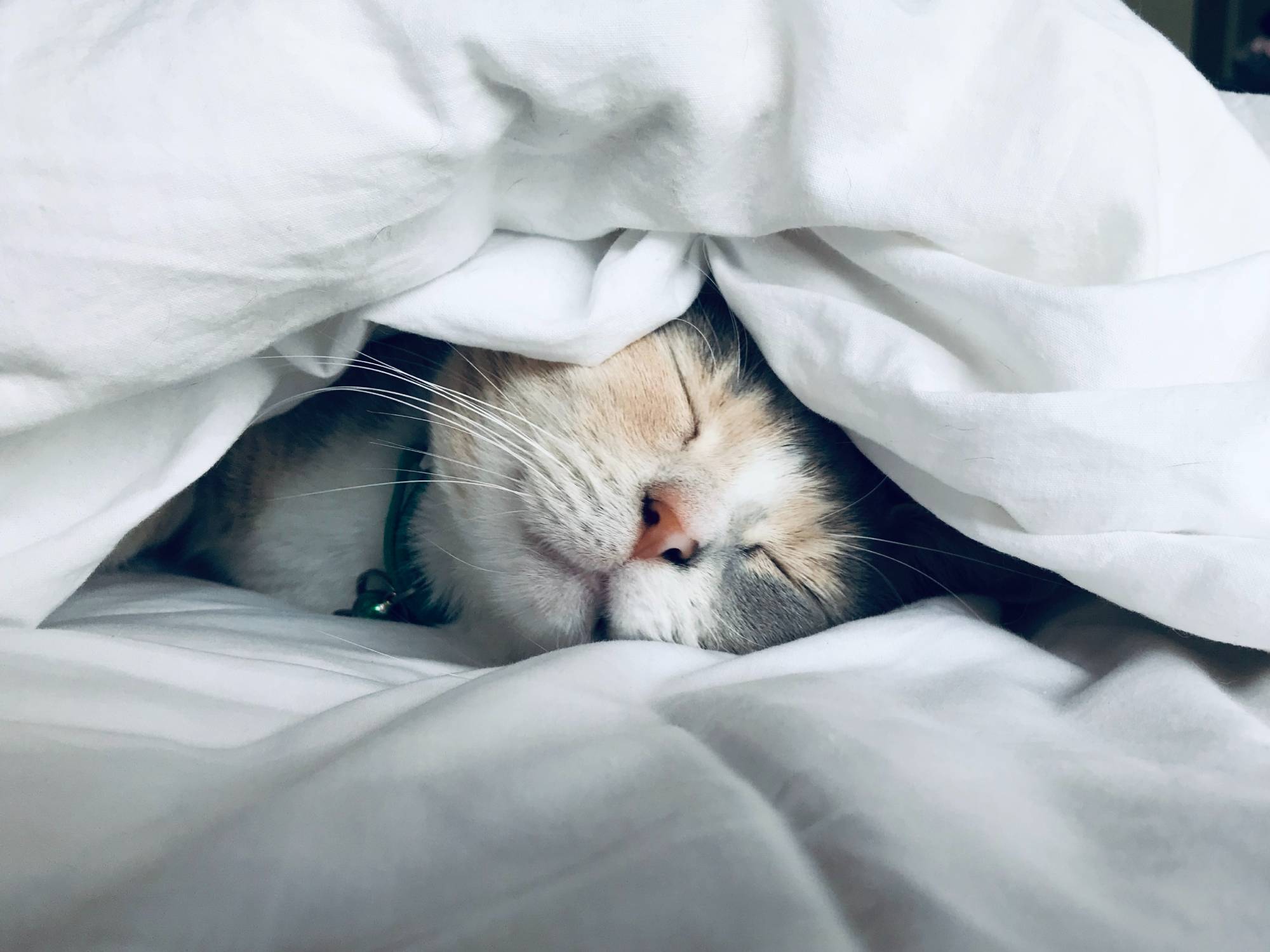

This story has been updated. It was originally published on October 22, 2018.
You’re enjoying a cozy dream until your alarm suddenly blares. But when you peek out the window, it’s still pitch black outside. Did your clock malfunction? Nope, it’s just winter—making the sun rise later so it will be twice as hard to crawl out of bed and into the cold darkness.
“Bright light is the most powerful time cue for influencing the circadian rhythm,” says Neil Kline, a sleep physician with the American Sleep Association, a professional organization that promotes public awareness of sleep health. Specifically, it’s the sun’s rays that tell us to wake up. As Kline explains, when light passes through your eyes, it sends a signal to the suprachiasmatic nucleus, a part of the brain positioned next to your peepers, which helps control the sleep-wake cycle.
As the days get shorter, our mornings lose that crucial light cue, so waking up gets harder. That means you’ll need to put in extra effort to either start work or get to work on time. We have a few tips that might help.
Stick to a regular schedule
Summer or winter, you should aim to go to bed at about the same time every evening and wake up at about the same time every morning.
“One of the most valuable actions that we can do to promote maintaining healthy sleep hygiene is to keep a regular schedule,” Kline says. This isn’t the sexiest advice, but it is very effective.
[Related: For better sleep, borrow the bedtime routine of a toddler]
What times should you aim for? Try to give yourself time so that you can get the recommended eight hours of sleep per night. Plenty of research backs this up, so if you pride yourself on requiring only six hours a night, well, it may be time to rethink that.
Getting quality zzz’s extends to your daily routine as well. Start by avoiding drinking too much alcohol, which might make you feel drowsy but can actually disrupt your dozing. Another good habit is to keep a regular exercise regimen.
And, just as bright light can help you wake up in the morning, avoiding that type of glare near bedtime can help you drift off. At night, you should especially steer clear of the blue light from electronic screens. So if you like reading before you close your eyes, try an actual book or an E-ink screen like a Kindle, which doesn’t emit the harsh blue light that phones and tablets do.
Finally, pick a bedtime and stick to it. Once you’ve had a full night’s sleep and trained your body to wake up at a set time, you should find it a bit easier to rise in the morning.
Buy a wake-up light
If you still have trouble with dark mornings, it might be time to introduce more light into your room. There’s no true replacement for sunlight streaming through your windows, but you have some options.
“For those that struggle with keeping a normal sleep-wake schedule and live in a relatively dark part of the world, portable bright light boxes can be helpful,” says Kline.
Philips makes some popular models that produce daytime light during gray winter days. The company also offers wake-up lights that simulate a sunrise, gradually getting brighter around the time you want to rise. These can cost anywhere from $50 to $300, depending on features like sunset simulation for bedtime, auxiliary cables for your phone, app support, and the number of included background sounds (if you like white noise with your light).
Of course, if you’d rather not pay for a specialized device—or you want to test this practice before you splurge—you can always hook your bedside lamp up to a cheap outlet timer and set it for your preferred wake-up time. I already have a set of smart bulbs in my room, so I just set those to turn on at a certain time using a whiter, more sunlight-esque color instead of the yellowish “soft white” of most bulbs.
Give yourself something to look forward to
Last but not least, waking up is easier when you have a good reason to be conscious. Sure, you might have to get up for work, but you’ll want to be vertical if you’re anticipating a delicious breakfast, or a workout that’s actually fun (the latter kills two birds with one stone, since—as we mentioned earlier—regular exercise helps you sleep better).
Automation makes this easy, too. Program your thermostat to raise the temperature before you wake so getting out of bed will feel pleasant rather than bone-chilling. Set your automatic coffee maker to start brewing before your alarm goes off, so you’ll rise to the aroma of fresh coffee. Just don’t drink too much java over the course of the day.
“Caffeine certainly can help to delay daytime sleepiness,” says Kline, But it’s no substitute for a solid eight hours. As Kline puts it, “We can only delay sleep debt for so long before we have to pay it back.”
